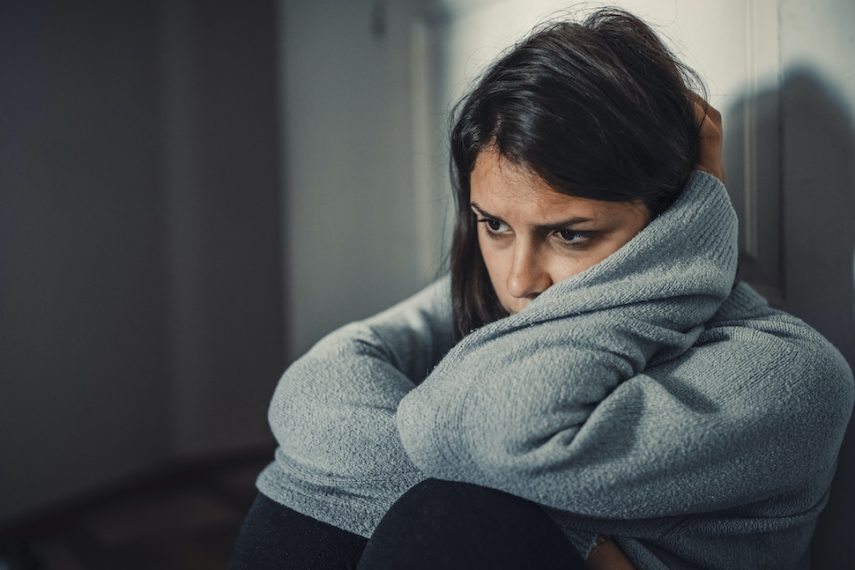Coping With Complicated Grief When You’ve Lost a Loved one to COVID

Mental health experts expect to see a significant rise in the number of complicated grief cases as the COVID-19 pandemic winds down. The combination of loss, isolation, and fear created a perfect brew for grief that goes beyond the healthy response. Complicated grief is prolonged, intense, and overwhelming. It can be challenging to manage, but possible with professional support, social support, and healthy coping mechanisms.
According to polls and studies, approximately 20% of people in the U.S. lost someone close to them to COVID. Between 5% and 10% of bereaved people experience an exceptional type of grief called complicated grief.
Combining these numbers means that millions of Americans could be struggling with complicated grief due to the pandemic. Normal grief is an expected and healthy reaction to loss, but complicated grief is intense, prolonged, and highly disruptive. It requires professional intervention.
If you are struggling to overcome COVID losses, talk to your doctor or a mental health professional about treatment and use coping strategies to put your life back together.
Grieving is a normal, human reaction to loss. You are most likely to grieve the loss of a loved one, but you can also grieve a change in your life, such as a failed marriage or when the kids leave home as adults.
Grief is a healthy, expected response. It helps you process the loss and associated emotions. Through grief, you learn to adapt to the change in your life. Although it feels terrible, the grief fades with time and becomes easier to manage.
Complicated grief, also sometimes referred to as prolonged grief disorder, is different and is not healthy. It persists for much longer and causes very intense emotions that interfere with your ability to function normally. Unlike normal grieving, complicated grief requires professional intervention to help you process, cope, and start to feel better.
How Do You Know if You Have Complicated Grief?
If you lost a loved one to the COVID pandemic, you might wonder if your grief experience is normal. Have you been grieving too long? Are your feelings too intense? Do you find it hard to go through a typical day’s routines or be around other people?
It’s essential to recognize that your grief might be more problematic than usual. Here are some of the important signs of complicated grief that distinguish it from healthy grieving:
- Intense, overwhelming emotions associated with the loss
- Constant rumination and focus on the loved one
- Avoiding reminders of the person you lost or obsessing over reminders
- Inability to find any joy in memories of your loved one
- Persistent longing to be with that person again
- Inability to accept the loss
- Difficulty finding purpose in life after the loss
- Feeling detached or numb
- Withdrawal from others
- Inability to carry out daily activities, like chores or going to work
- Feelings that you could have done something to save your loved one
- Wishing you had died with them
A crucial part of the diagnosis for complicated or prolonged grief is that it persists much longer than standard grief. Clinicians diagnose complicated grief when you have some of these symptoms most days for at least a year.
How a Pandemic Can Cause Complicated Grief
Losing a loved one to any disease at any time should lead to grief, and it might even cause complicated grief. The pandemic has set more people up for complicated grief than usual. The circumstances of the events of the last few years have made more of the population vulnerable.
Studies have already shown that people are at an increased risk for complicated grief after losing someone in a natural disaster or while in the intensive care unit (ICU) of a hospital. Like a perfect storm, the pandemic included both of these elements.
A disease pandemic can be considered a natural disaster because of the common elements: multiple deaths, closures of schools and other services, supply shortages, and an overall traumatic environment in which to lose a loved one.
The accumulation of losses—likely more than one loved one, but also regular social contact and routines—during a disaster like the pandemic forces you to face grief from many angles. It also causes fear and uncertainty for your own safety and the future. The messages coming from news and social media likely added to your traumatic experience.
Many people died in the ICU during the pandemic. Seeing a loved one in this environment can be traumatic and increases the risk of complicated grief. Visits with patients are restricted in the ICU during normal times. During the pandemic, people could not come in at all to see or speak to their dying loved ones. If this happened to you, it might have left you feeling guilty for not being there, traumatized, and without proper closure.
Call for a Free Confidential Assessment.
877-727-4343How to Cope With Complicated Grief After the Pandemic
First, it helps to understand how this unique situation sets you up for more prolonged and intense grief. There is nothing wrong with you or your response to losing someone to COVID. This was an exceptionally challenging time, and many people are experiencing something similar.
Getting Professional Support
The most important step you can take to heal from this grief is to seek professional help. If you find you can’t move on, that your feelings are not becoming any less intense, and that you can’t function normally or enjoy life, a trained mental health professional can help.
Therapy is the primary tool for treating complicated grief. A therapist can help you learn more about your experience and what it means. They can lead you through imagined conversations with your loved one in order to process the loss. They can also teach you additional coping skills and help you change negative, unhealthy reactions and behaviors, such as feeling guilt over your loved one’s death.
Find a Way to Celebrate Your Loved One
Another issue that arose during the pandemic was the inability to hold funerals and memorial services. Many families had to delay or cancel these important rituals, which can leave you feeling even more guilty and without proper closure.
Whether you are able to hold a traditional in-person service or not, you can find ways to remember and celebrate your loved one. Have a virtual celebration of their life, for instance. Smaller remembrances help too. Read your loved one’s favorite book, cook their favorite food, or keep a journal of your happy memories with them.
Maintain Social Connections
Social support faltered during the pandemic, but to heal from grief, you need social connections. Although you might feel like withdrawing, resist that urge. Get out of the house to meet friends. Contact other people who loved the person you lost and talk about them.
Your closest friends and family can be a shoulder to cry on. They can also be a source of joy and pleasure, a reminder of what you have to live for. Socializing is also a healthy distraction from feelings of grief and sadness.
Take Care of Yourself
Apathy and an inability to perform everyday activities are expected in complicated grief. You feel too sad to take care of yourself, or you simply don’t care about your wellness. It might seem impossible to do these things while grieving, but self-care will help you feel better.
Get outside and get sunshine and exercise. Make yourself healthy meals and try to get enough sleep each night. Avoid using things like alcohol as coping mechanisms. Instead, try relaxation or stress mitigation activities like yoga, meditation, or deep breathing.
Find a Purpose
Set goals for learning or doing something new or challenging. This gives you a sense of purpose, a reason to keep going, and a healthy distraction from your ongoing grief. It could be a new skill or hobby to learn, working toward a job promotion, earning a degree, or starting volunteer work. Whatever interests you and gives you purpose will help you climb out of your grief.
Complicated grief is a significant challenge and is likely on the rise. If you are struggling with this mental illness, you are not alone. The pandemic put so many people in the path of prolonged grief, but you can overcome it. Learn how to cope in healthy ways and work with a professional to begin to enjoy life again.
Are you or a loved one suffering from complicated grief? Bridges to Recovery can help.






